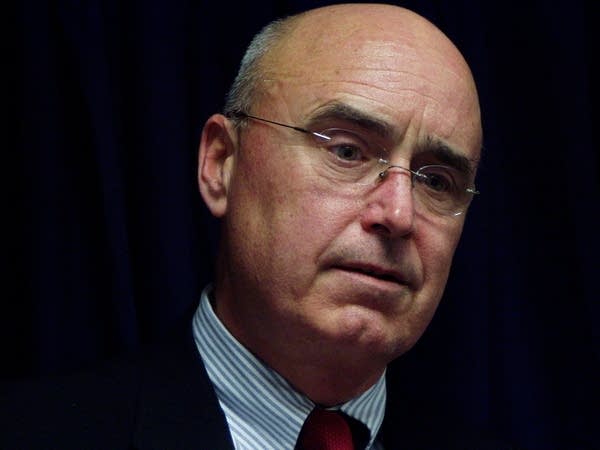Coleman may face uphill battle in court challenge
Go Deeper.
Create an account or log in to save stories.
Like this?
Thanks for liking this story! We have added it to a list of your favorite stories.

The court documents detail a litany of attacks on the Senate recount process. Coleman raises some of the earlier ballot disputes, such as alleging officials counted duplicate ballots and did not count some improperly rejected absentee ballots, but the suit also adds some new complaints.
For instance, it says that the Canvassing Board erred in determining voter intent on challenged ballots and that some voters who weren't eligible to vote did.
Coleman's attorney, Fritz Knaak, said now that the legal process has started, the campaign can use it to get information that it couldn't during the recount.

"Which is sitting down with local officials, having them under oath, taking statements, finding out what in fact happened in some of these polling places," Knaak said. "We're already aware of a situation in Minneapolis, for example, where we will have someone who's prepared to testify that double voting did occur."
Turn Up Your Support
MPR News helps you turn down the noise and build shared understanding. Turn up your support for this public resource and keep trusted journalism accessible to all.
The lawsuit also means both sides may access voter rolls, inspect machines and take testimony from election workers.
Franken's campaign was quick to disparage Coleman's suit. Franken's attorney Marc Elias said Coleman had a right to file it but he criticized Coleman for rehashing old disputes.
"It's the same arguments that they've gone to the supreme court and lost on before," Elias said. "It's the same arguments that they went to the bipartisan canvassing board on and lost before. It's the same arguments they've trotted out with you before. And the results will be the same this time as before."
Elias said the Franken campaign could make some counter-claims, but would not reveal them right now.
Rick Hasen specializes in Election Law at Loyola Law School in Los Angeles. While Hasen isn't an expert on Minnesota law, he said generally after a canvassing board decides a recount contest, the person challenging the outcome faces an uphill battle.
"There's a great psychological, and I'd say legal advantage that comes with being declared the winner," Hasen said. "If you're the loser, not only do you face calls from the public that you need to step aside and let the person take office but you also bear the burden of proof in the contest that there's been an error."
University of Minnesota Constitutional Law Professor Fred Morrison also said the Coleman campaign will have a tough case. It must now prove, in a court of law, that ballots were counted incorrectly. He said the campaign will have to identify a large flaw in the process that could swing hundreds of votes or prove mistakes ballot by ballot.
"They might use a sampling process to say 'this precinct should be looked at again' but I think they're going to have proof of every single ballot they're contesting at this point," Morrison said. "And the trial is supposed to start fairly shortly after the contest is filed and so it's a lot of work that needs to be done in a short period of time."
The election was more than two months ago and Coleman's attorneys say the legal case could go on for weeks, even up to two months.
Dear reader,
Political debates with family or friends can get heated. But what if there was a way to handle them better?
You can learn how to have civil political conversations with our new e-book!
Download our free e-book, Talking Sense: Have Hard Political Conversations, Better, and learn how to talk without the tension.




